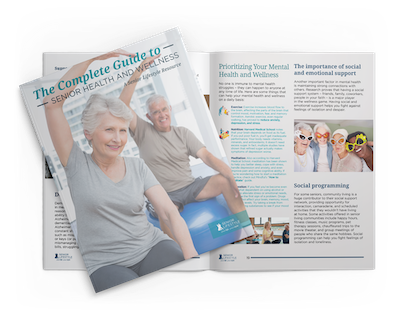The AARP recently published a study called “Weight Loss Among the 18+”.
The study set out to examine individuals’ attitudes and behaviors relating to their weight, but the implications of the findings could go much deeper.
The researchers reported the following:
“Older adults (69%) are more likely than younger adults (61%) to say they have tried to lose weight.”
In the full report, the researchers continue:
“There are at least two reasonable explanations:
– This finding may reflect that as people age, their metabolism slows down and they are likely to gain weight unless they control their diet and exercise.
– Alternatively, older adults have lived longer and thus had more time to try to lose weight than younger adults.”
Both of these are indeed reasonable explanations, but, as the researchers imply, there might be others.
Is it not possible that this is further evidence that the older we get, the more honest we are?

Download The Complete Guide to Health & Wellness for Seniors
As people grow older, their health and wellness needs change. Read our eBook, “The Complete Guide to Health & Wellness for Seniors” for everything you need to know about staying healthy and happy as we age.
Download the GuidePerhaps we feel less of an urge to impress others or bow to social norms as we gain more experience (and weight), which makes us more comfortable admitting things like trying to lose weight–even if we failed. Maybe, the difference found between old and young responses is evidence of a generational honesty gap.
How do you react to honesty?
Depending on your disposition, honest opinions from people you care about can trigger a variety of emotions ranging from touched to insulted. But our elders’ straight-talk is usually a refreshing break from the endless stream of half-hearted doublespeak, white lies, and qualifiers that dominate our daily lives. (You know, stuff like, “It is what it is,” “To be honest,” “Having said that,” and “I’m not gonna lie.”)
These are phrases that can muddle what we really mean and often reveal that our day-to-day communication is anything but honest.
These days, a straight shot of truth never tasted so good. So why are we so quick to ignore one when we get it?

